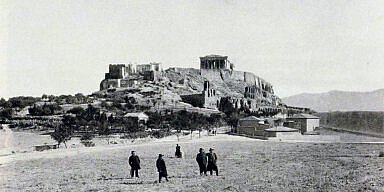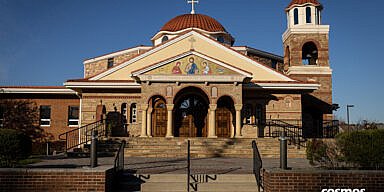Most of us have heard the expression history repeats itself. and that the only way to avoid the same patterns is to learn from the lessons that history teaches us.
We learn through stories, passed down from generation to generation in order to educate and enlighten those who do not know and show them these events that happened and the people who made them happen. We learn about what our elders and ancestors did in the past, and it shapes who we are today, influencing our thoughts and musings, or changing our actions perhaps. Most of all, we learn to incorporate these stories into our worldview, looking at the world we live in with new eyes and refreshed perspective.
That is why stories are remembered. That is why stories are retold. And recently some are realizing that there is a story needs to be heard. That story is “No Man Is An Island.”
“No Man Is An Island” will tell “the unique [and] the complete survival story of the entire Jewish population on the island of Zakynthos.” It will tell a tale of courage, resilience, community, and leadership. It wishes not only to teach, but to amaze.
Gregory Pappas of Pappas Post, along with Steven Priovolos, have launched the project on Indiegogo, an independent fundraising website, as a way to elucidate to today’s Greeks a past threat that seems to be growing more in present day. The film, which is seeking donations to reach its $75,000 fundraising goal, will be shot on the island itself and document how the people achieved such a remarkable and unlikely victory.
A trailer for the hopeful film project shows black and white stills and footage from the World War II era, accompanied by a voiceover narrating the grim circumstances Zakynthos’ people faced. The odds were overwhelmingly against the islanders, charged as they were with overcoming the massive resources and power commanded by the Nazi regime during the years of the German takeover.
But instead, Pappas writes, the island’s 35,000 Orthodox Christians, led by their mayor and archbishop, refused to give in to Hitler’s goals of exterminating their Jewish population, as was occurring across the rest of Greece and throughout Europe.
“Thanks to the leaders’ continued courage and the islanders’ steadfast refusal to betray their fellow Greek neighbors who happened to be Jews, all the Jews of Zakynthos survived the war. In the rest of Greece, more than 80 percent of the Jewish population was killed in the Holocaust,” Pappas writes.
The story is increasingly relevant today, says Pappas, with the rise of Neo Nazi groups in Greece. A group called Golden Dawn have appeared in the news recently, as this right wing fascist group has gained popularity during the Greek crisis. The party has drawn the attention of major news outlets The New York Times and The Huffington Post, which have reported on the group’s violent anti-immigrant tactics and hate-speech-filled politics.
Pappas and Priovolos hope to produce this film “at a time in history when the image of Greece and Greeks has reached new lows in the international media, [when] this film will do wonders by shining a positive light on one of the world’s greatest stories of hope and humanity.” The story of the Greek defiance of Nazism is a story modern that Greece, America, and the world should hear again, and learn a lesson from its remarkable impact in these trying times.


